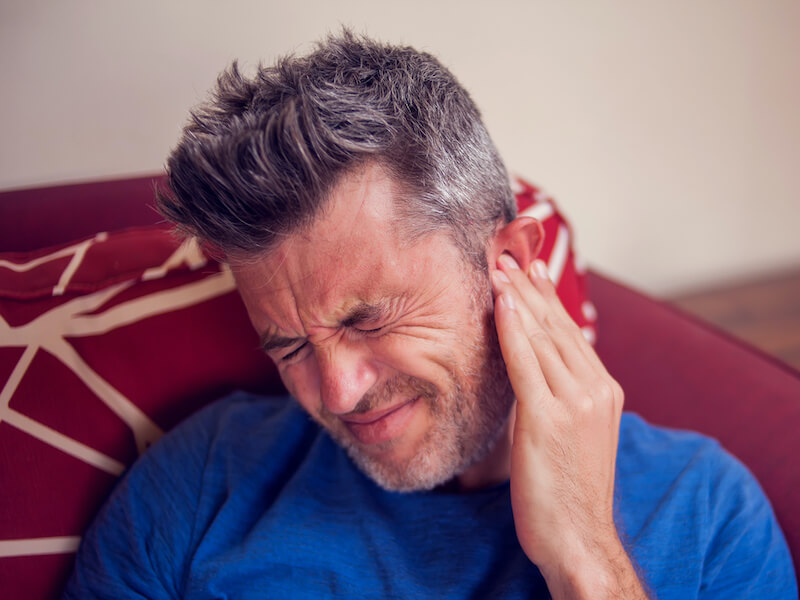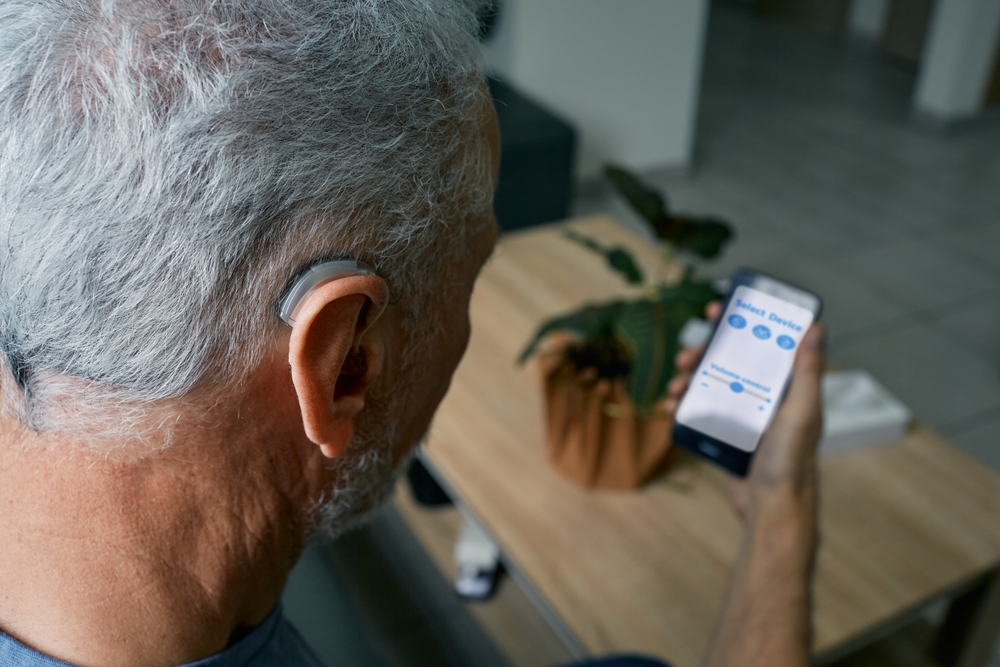When most people talk about their tinnitus, they describe a ringing, humming, or tone-like sound. It’s generally the result of damage to your inner ear. Unfortunately, this causes mixed signals that your brain interprets as a strange sound.
Pulsatile tinnitus is something else entirely.
Pulsatile tinnitus happens when you can hear the blood circulating near your ears. You might hear something like a tha-thump, wha-whoosh, or chu-chug with each heartbeat.
It may not sound like what most people call tinnitus, but it could be a warning sign just like the other tinnitus. So let’s explore what causes pulsatile tinnitus and what you may be able to do to stop it.
Pulsatile tinnitus causes
When pulsatile tinnitus is temporary, there’s usually an obvious and immediate cause. For example, too many cups of coffee, a horror movie that looked campy but turned out to be legit scary, or one of your kids yelling, “Mom, Dad, look what we found in the basement!”
The sensation of hearing a rhythmic heartbeat or whooshing sound isn’t limited to specific situations–it’s heard all the time. This condition is known as pulsatile tinnitus. This is a variation of tinnitus where instead of hearing a continuous ringing in the ear, the person hears a rhythmic sound. Because it’s the sound of their own blood flowing, this kind of tinnitus is referred to as objective tinnitus–you can hear the sound, and a hearing specialist can hear it, too. (Most tinnitus forms are subjective, meaning the sufferer can hear the sound, but it’s not audible to others.)
But when it’s constantly pulsing in your ears, pulsatile tinnitus should be checked out. Like other forms of tinnitus, it’s not a disease, but a symptom; diagnosing and treating the cause of pulsatile tinnitus can help alleviate the symptom. This is especially true when people hear a heartbeat in the ear.
Doctors don’t consider tinnitus to be a disease itself. Instead, they label it as a symptom of an underlying condition. Understanding what that condition is will often give hearing specialists the clues they need to help reduce your tinnitus symptoms.
Here are the most common causes.
High blood pressure
Any time you feel like you’re going to blow your top, that’s your arteries constricting or getting narrower. As they narrow, it’s harder for blood to move through them.
Life-giving blood has to force itself through to deliver oxygen and nutrients to your body. This puts a lot of pressure on those arterial walls. And because that artery is so close to your inner ear, you can actually hear it each time blood forces its way through the narrowed passage.
Atherosclerosis
This is arterial plaque. It’s a hard buildup of bad cholesterol and fat inside the arteries. When it’s bad, it’s bad, creating a whole range of mountains and valleys along the artery wall. In order for blood cells to get where they’re going, they must navigate up and down and around these obstructions.
All of this maneuvering causes a lot of racket.
Carotid arteries & the jugular vein
Your carotid arteries are the major arteries responsible for getting nutrients from the heart to the brain. If you were to squeeze the sides of your neck (which we don’t recommend), you’d note that your face would turn red. The Jugular vein takes the blood back to the heart after it drops off the nutrients it was carrying.
Either one of these can become narrowed, causing irregular circulatory patterns you can hear.
Tumors
In rarer cases, a neck tumor may be pressing on your arteries or veins. Your doctor will be able to help diagnose whether this is the cause of your pulsatile tinnitus.
Pulsatile tinnitus can indicate the presence of a tumor in the head or neck that’s placing pressure on (and narrowing) a vein, problems with pressure inside the head (like intracranial hypertension or hydrocephalus), or an aneurysm. This latter group of problems is about as serious as health issues can get, and proper diagnosis and intervention are vital.
Capillary abnormalities
Capillaries are the small vessels that branch out from the artery to reach more precise locations. Other capillaries draw up expended blood cells, carrying them back to the veins. Capillaries can grow abnormal as a result of congenital disabilities and diseases.
In some cases, pulsatile tinnitus may be caused by malformed connections between arteries and veins, deformities in the small bones in the middle ear, or by a small blood vessel that has a “pouch” near the eardrum. These are usually left untreated.
Some people can hear the blood working its way through this network. If this is the cause, it’s normally experienced only on one side.
Anemia & overactive thyroid
Also less common, these ailments can cause blood to move more quickly and forcefully through the arteries.
What should you do if you think you have pulsatile tinnitus?
Though for some people pulsatile tinnitus is debilitating, disrupting sleep and making it difficult to concentrate, for others it’s merely an annoyance–and not something they’d necessarily deem checkup-worthy. But given that pulsatile tinnitus could be a symptom of a serious or even life-threatening condition, if hearing your pulse in your ears is something you’re experiencing all the time–not just when you’re about to ask your boss for a raise–get it checked out.
Is pulsatile tinnitus dangerous?
Even if you cast aside the health risks of the most likely culprit which is heart disease, the sound itself can cause its own set of health and life problems like:
- Insomnia
- Fatigue (because of insomnia)
- Weight gain (associated with poor sleep)
- Irritability, anxiety and even depression
- Difficulty concentrating and increased accidents
- Worsened cardiac symptoms
Pulsatile tinnitus treatments
Depending on the cause of your tinnitus, a specialist may recommend that you do one or more of the following:
- Learn stress management techniques like yoga, meditation or taking “me time”
- Get more exercise
- Manage your blood pressure
- Reduce sodium intake
- Lower your cholesterol
- Stop smoking
- Take medication for the underlying health condition
- Sound therapy — If the blood vessel isn’t treatable, then a hearing specialist can administer a sound into your ear that desensitizes your brain to the sound.
- Cognitive Behavioral Therapy — A CBT specialist helps you identify harmful thinking habits and replace them with more positive, healthy ways of thinking. For example, if you tend to fume for hours over something your friend said or did, this can raise your blood pressure. CBT helps you redirect your thoughts and let stuff go.
Stop this pulsing in my ears!
If you have a pulsing sound in your ears, don’t ignore it. Speak with a professional about the symptoms so that they can identify the cause.
You may be able to speculate about the cause of your pulsatile tinnitus, but you should always seek professional help if you hear a pulsing sound in your ears. Any of these causes could pose a risk to your health and you need to address it.

